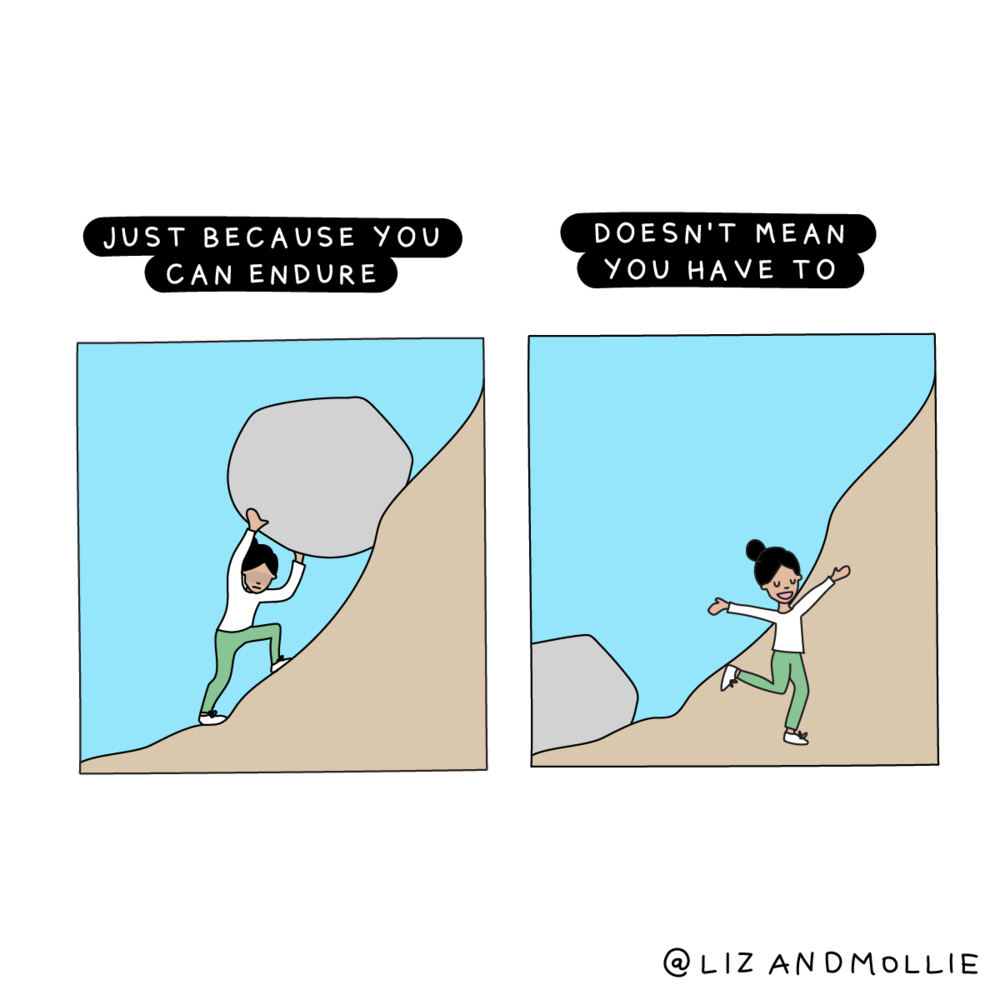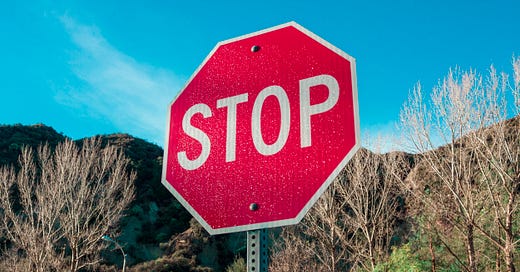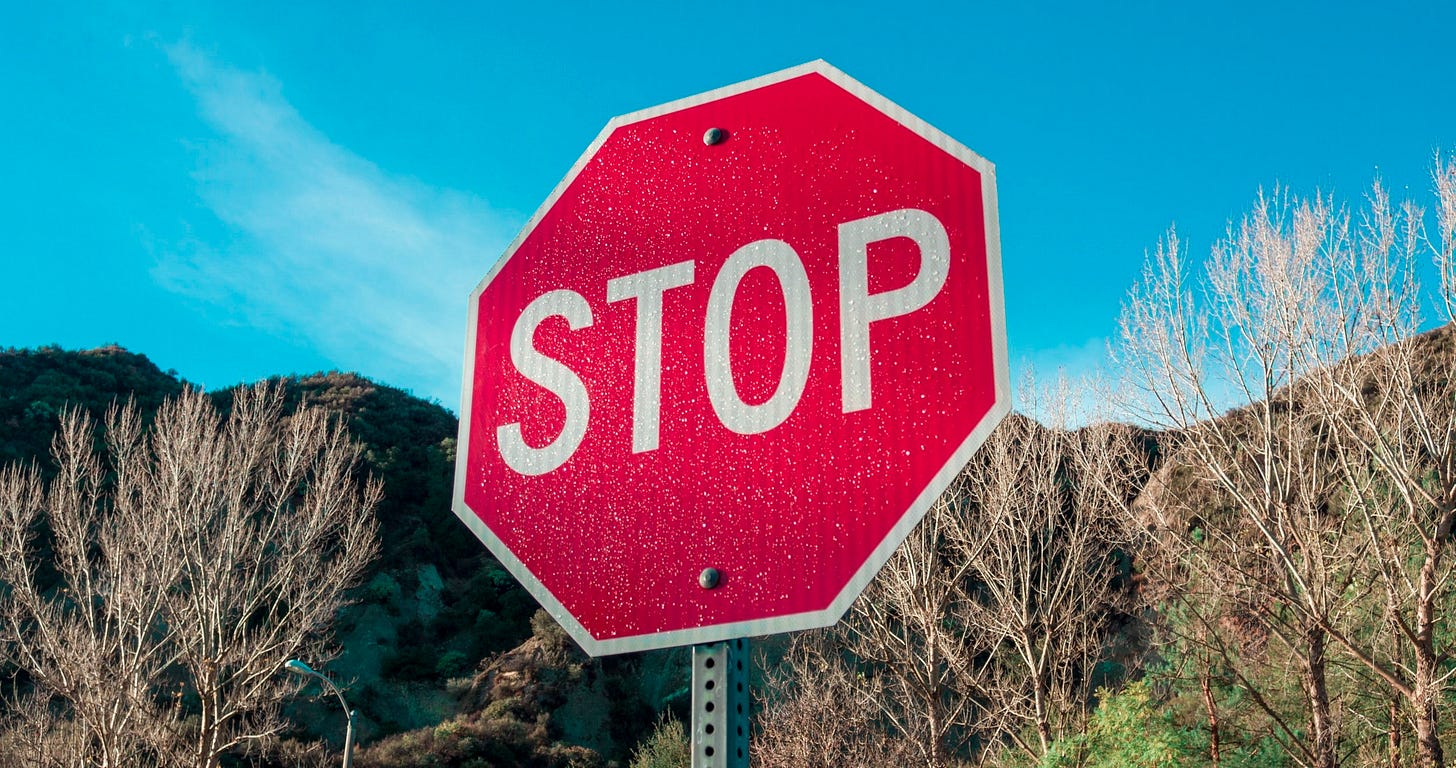Quitting Is a Skill
We’ve all needed to quit something in our lives—a project, a job, a friendship, a business partnership, a romantic relationship, the list of things that may no longer be serving you goes on and on.
But there’s something about our puritanical, self-flagellating American culture that ingrains in us that something must be completely ablaze before you grab the fire extinguisher. Alexander didn’t have a ‘meh’ day, but a Terrible, Horrible, No Good, Very Bad Day.
And it’s that kind of toxic, all-or-nothing thinking that has been detrimental to my mental health. Because you don’t need to be in an abusive environment to consider leaving, and I’d argue that the longer you let those little embers get out of hand, the more likely your house is going to burn down.
The Call Is Coming From Inside the House
I’m clearly mixing house metaphors here, but once something is ingrained, we become our own worst enemy. We don’t even need someone else to gaslight us into gritting our teeth, because we do it to ourselves! How many times have you caught yourself thinking something like…
“Yeah, we’re incompatible, but opposites attract, right? It’s not like they’re yelling at me or cheating on me, so we just need to keep working at it.”
Or…
“Sure, I hate my job, but doesn’t everybody? I just need to wait until my stock vests, and then I’ll think about updating my resume.”
Before you know it, months turn into years, “meh” turns into Very Bad, and Sunday Scaries morph into a full-blown anxiety disorder.
Now I’m not going to say that quitting is easy, and it can seem downright impossible when the very thing you’re trying to quit is paying your bills or co-parenting your kids. It’s a huge privilege to step aside from financial, emotional, or even physical safety.
What we can all do, however, is practice.
Low-Key Quitting
By no means am I the first person on earth to suggest that quitting is a skill, especially during the so-called “Great Resignation.” 47 million people quit their jobs last year, which is empowering in itself because it creates a snowball effect. Once your work friends leave, you’re more likely to follow them out the door.
But you don’t need to put your employer-sponsored health insurance at stake to learn the skill of quitting. Even when you’re aware of the sunk cost fallacy, it can be challenging to work up the courage to cut your losses. In fact, one great way you can gain the confidence to tackle the big stuff is by practicing on the small stuff.
And that, for me, is reading.
The Dreaded DNF
I’ve been tracking my reading on Goodreads for a decade now, but not until recently did I finally succumb to creating a DNF bookshelf—the graveyard for books I Did Not Finish. And now it has one digital tombstone, because after a year of failing to reach the one-third mark, let alone ‘The End’, I had to admit to myself that it just wasn’t going to happen.
And this decision felt particularly shameful because I wasn’t abandoning some random writer I read for the first time. I was walking away from a book by Meg Cabot, the creator of The Princess Diaries series and one of my all-time favorite authors. Cabot has written over 80 books, and it’s safe to say that I have read at least half of them.
On top of that, I was quitting a sequel! I had greatly enjoyed No Judgments, the first installment of Cabot’s Little Bridge Island series, which somehow turned a Florida hurricane into excellent rom-com material. So when No Offense came out a year later, there was no question whether I’d be adding it to my “Want to Read” list.
So what happened?
When the Stars Don’t Align
Not much, actually! I just needed to accept that a book doesn’t need to be Very Bad for me to stop reading it. I have powered through dozens of 1-star and 2-star novels for the sake of completion, but I have to remind myself that every second I spend with a story that’s not my cup of tea is a second I could be reading the equivalent of a Fortnum & Mason Breakfast Blend.
Sometimes I’m not vibing with a book through no fault of its own, and I’m just not in the headspace to read a small-town romance between a cop and a librarian who discover an abandoned baby in a bathroom—even if it’s written by someone I deeply admire.
And if you’re thinking, but wait—why did you start reading if you weren’t on board with that premise when it’s clearly explained in the flap copy? Well, before you go blaming the victim, just remember that it’s okay if things don’t work out like you hoped they would.
Sometimes you leave a partner even though you love them, sometimes you quit a job even though it pays really well and you like the team, and sometimes you put down a book you never would have picked up in the first place if you didn’t trust the author so much.
(And if Meg Cabot happens to stumble upon this blog post, I’d like it on the record that I’m currently reading No Words, because I am forever an optimist.)
Keep Calm and Learn to Quit
Shit happens, man. You’re allowed to make mistakes, learn lessons, and have regrets. You’re allowed to fail or leave things unfinished. You’re allowed to change your mind and dream new dreams. There’s no permanent record for life, and I have yet to make a decision so catastrophic that it’s not worth living anymore.
You don’t need anyone’s permission to quit, but if there’s something that’s not sitting right with you, feel free to take these words as a sign to stop, so you can start something better.





